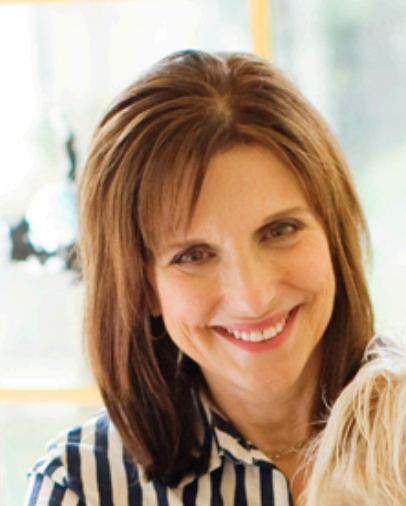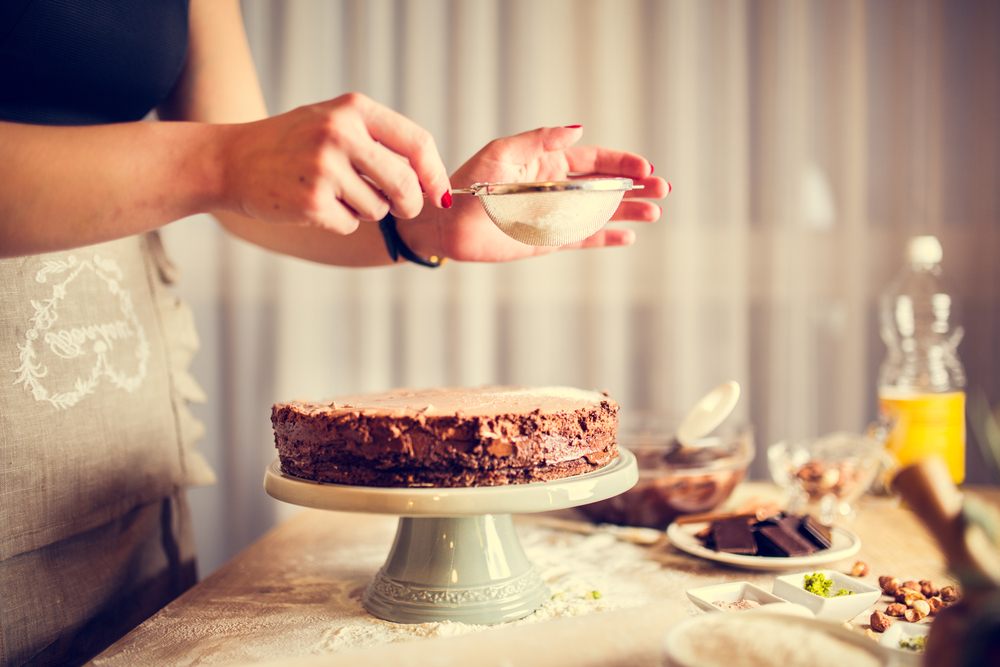One of the most challenging aspects of this pandemic is uncertainty. It’s hard to envision an end, and not even the experts can provide concrete reassurance about when we will return to “normal.” If indeed there will be a normal state of affairs resembling our lives before the coronavirus.
Left unchecked, this sense of uncertainty can negatively impact our mental and physical health, so it makes sense that we’re seeing a surge of people turning to pastimes like baking and puzzles for comfort. Sure, they’re easy to do while staying home, but also, these projects are finite, with a visible outcome — which, especially now, feels very comforting. You finish the puzzle and it’s done. You take the cake out of the oven and it’s done.
Jeremy Konyndyk, a pandemic preparedness expert and senior policy fellow at the Center for Global Development, told The New York Times that he took up baking while helping lead the U.S. response to Ebola as director of the U.S. Foreign Disaster Assistance office under Obama. “In disaster relief — famine, war, epidemics — the crisis goes on and on and on. There’s no point where you’re finished,” he said. “Baking lets you take a project from beginning to end.”
That’s true for a certain breed of hobbies, from puzzles to painting to knitting. If you are knitting a hat, you start it and finish it. The same applies to some domestic projects like cleaning out a cabinet or reorganizing a closet — you’re done, at least for the moment, and can relish in your accomplishment. The psychological sense of completion is satisfying and comforting, particularly during a time when there seems to be no clear light at the end of the tunnel.
“While we can’t control the pandemic,” says Martha Ringer, a business consultant and coach who works with clients on fulfilling commitments to completion, “We do have control of finishing the things we start ourselves.”
Here, Ringer shares five strategies for tapping into the benefits of projects with a clear end.
Do small things you can complete easily
There’s no need to start a major project to see stress-relieving results. Simple tasks that have an end each time you do them, like making your bed every day, hanging up your clothes, and sanitizing commonly touched surfaces like doorknobs and light switches, can grant you the same satisfaction.
Do one thing at a time
When you are working on a project, whether it’s cooking a new recipe or sewing a shirt, don’t multitask. Ringer points out that people often think if they do a lot of things simultaneously, they will get to the finish line more quickly. “Not true,” she says. “Doing one task at a time, and finishing, is more calming and productive.”
Focus for at least an hour with no interruptions
Set aside a specific block of time to do whatever project you have chosen. Turn off notifications and during that “focus hour,” don’t answer your phone, texts or emails. “Consistent uninterrupted time starts will keep you centered and calm,” says Ringer. And with time, you’ll start to trust this time and look forward to it. Work slowly and with your full attention, because moving quickly invites mistakes.
If you are stuck on something, declare it finished
If there’s something you’ve started but couldn’t bring yourself to finish, like that book which has been sitting in the pile on your nightstand for months, declare it “complete.” Doing that out loud is even more effective. Leave just one book that you are actually reading by your bed. Put away things you left lying around hoping they’ll remind you to finish them, like a half knitted scarf. “It’s unlikely you will ever get to it,” says Ringer. It’s sapping your energy, which is more precious than ever right now. If you want to do it at a later date, you can always come back to it.
Celebrate even small victories
When you’ve finished baking your cake or have read the last chapter of your book, find a way to celebrate what you’ve just accomplished, says Ringer, even if that just means jumping up and down or telling yourself, “well done.” The acknowledgment keeps the enthusiasm alive and will encourage you to move on to the next (hopefully stress-relieving) project.
Follow us here and subscribe here for all the latest news on how you can keep Thriving.
Stay up to date or catch-up on all our podcasts with Arianna Huffington here.


